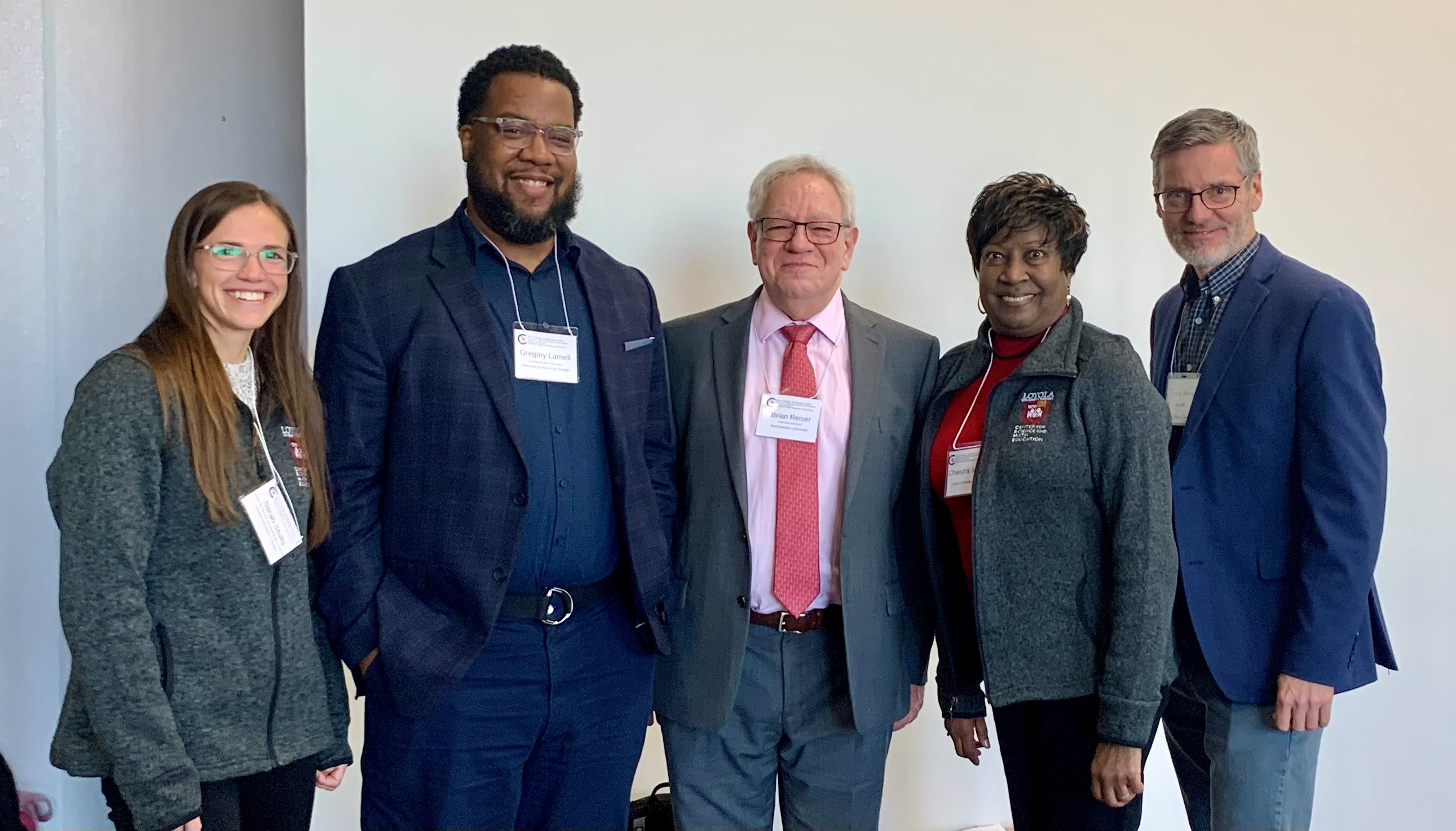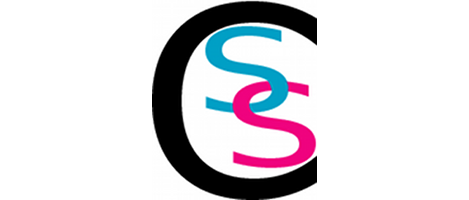Chicago Symposium Series, Excellence in Teaching Mathematics and Science: Research and Practice
Chicago Symposium Series, Excellence in Teaching Mathematics and Science: Research and Practice

Members of the CSME team attended the Chicago Symposium Series on Excellence in Teaching Mathematics and Science: Research and Practice in February of 2024 at Governors State University. The Chicago Symposium is a forum for faculty and graduate students in education, mathematics, and science devoted to improving teaching and learning of mathematics and science. The mission of the Chicago Symposium Series is to sustain a dynamic interdisciplinary, inter-institutional community of scholars, who are well-informed about national and local initiatives and research on mathematics and science education, for the purpose of improving instructional practice. The Chicago Symposia feature preeminent researchers and practitioners in mathematics and science education. The February Symposium featured plenary speakers Dr. Gregory Larnell and Dr. Brian Reiser.
Dr. Larnell is an Associate Professor of Curriculum and Instruction at University of Illinois at Chicago. He specializes in the study of mathematics education as a curricular field, as an institutional-policy enterprise, and as a site for experiencing learning and teaching. He has drawn on theoretical ideas from multiple fields toward critically examining the role of standards in school mathematics; Black learners' experiences in non-credit remedial mathematics courses; teaching and learning mathematics for social justice; identities, stereotypes, and mathematics-learning experiences; urban mathematics education; and the use of critical race theory in mathematics education research.
Dr. Larnell’s plenary talk explored the evolution of equity within the academic scholarship of mathematics education. He argued that equity discourse has a decades-long and distinctive history in U.S. mathematics education. The talk highlighted both the developments and dangers of equity as a discourse and was punctuated by the following questions: For whom and what purposes? Who benefits? What have we learned and gained? What do we stand to lose?
Dr. Brian Reiser is the Orrington Lunt Professor of Learning Sciences in the School of Education and Social Policy at Northwestern University. Reiser’s work explores how to make science learning more meaningful in K-12 classrooms as students investigate questions and problems they identify. Reiser heads NextGen Science Storylines, a researcher-teacher collaborative developing and investigating design principles for storyline units in which students help manage the trajectory of science knowledge building. He also leads the Northwestern team of the OpenSciEd Developer’s Consortium, a partnership with ten state education agencies to design and field test storyline instructional materials.
Dr. Reiser’s plenary talk described the “storylines” approach to science teaching, in which each step in students’ learning is motivated by the questions they articulate and problems they identify through their interactions with real-world phenomena. Reiser demonstrated how elementary, middle school, and high school teachers across the country use science storylines to empower their students in science learning that they see as more relevant to their lives, their families, and communities. He used classroom video and student work from storyline classrooms to illustrate the teaching and curriculum materials design approaches that support this more meaningful approach to science learning.
We are looking forward to hosting the next Chicago Symposium at Loyola’s Lake Shore Campus on Friday, April 12, 2024, 10am – 5pm. Registration is currently open.


Members of the CSME team attended the Chicago Symposium Series on Excellence in Teaching Mathematics and Science: Research and Practice in February of 2024 at Governors State University. The Chicago Symposium is a forum for faculty and graduate students in education, mathematics, and science devoted to improving teaching and learning of mathematics and science. The mission of the Chicago Symposium Series is to sustain a dynamic interdisciplinary, inter-institutional community of scholars, who are well-informed about national and local initiatives and research on mathematics and science education, for the purpose of improving instructional practice. The Chicago Symposia feature preeminent researchers and practitioners in mathematics and science education. The February Symposium featured plenary speakers Dr. Gregory Larnell and Dr. Brian Reiser.
Dr. Larnell is an Associate Professor of Curriculum and Instruction at University of Illinois at Chicago. He specializes in the study of mathematics education as a curricular field, as an institutional-policy enterprise, and as a site for experiencing learning and teaching. He has drawn on theoretical ideas from multiple fields toward critically examining the role of standards in school mathematics; Black learners' experiences in non-credit remedial mathematics courses; teaching and learning mathematics for social justice; identities, stereotypes, and mathematics-learning experiences; urban mathematics education; and the use of critical race theory in mathematics education research.
Dr. Larnell’s plenary talk explored the evolution of equity within the academic scholarship of mathematics education. He argued that equity discourse has a decades-long and distinctive history in U.S. mathematics education. The talk highlighted both the developments and dangers of equity as a discourse and was punctuated by the following questions: For whom and what purposes? Who benefits? What have we learned and gained? What do we stand to lose?
Dr. Brian Reiser is the Orrington Lunt Professor of Learning Sciences in the School of Education and Social Policy at Northwestern University. Reiser’s work explores how to make science learning more meaningful in K-12 classrooms as students investigate questions and problems they identify. Reiser heads NextGen Science Storylines, a researcher-teacher collaborative developing and investigating design principles for storyline units in which students help manage the trajectory of science knowledge building. He also leads the Northwestern team of the OpenSciEd Developer’s Consortium, a partnership with ten state education agencies to design and field test storyline instructional materials.
Dr. Reiser’s plenary talk described the “storylines” approach to science teaching, in which each step in students’ learning is motivated by the questions they articulate and problems they identify through their interactions with real-world phenomena. Reiser demonstrated how elementary, middle school, and high school teachers across the country use science storylines to empower their students in science learning that they see as more relevant to their lives, their families, and communities. He used classroom video and student work from storyline classrooms to illustrate the teaching and curriculum materials design approaches that support this more meaningful approach to science learning.
We are looking forward to hosting the next Chicago Symposium at Loyola’s Lake Shore Campus on Friday, April 12, 2024, 10am – 5pm. Registration is currently open.

